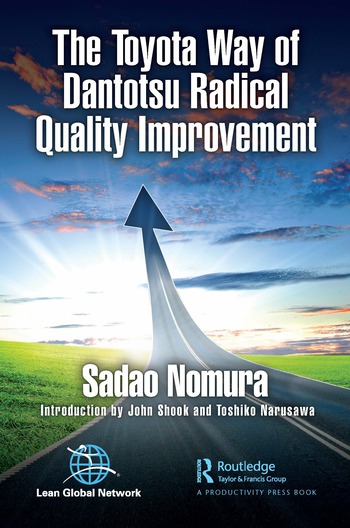The number of people I meet who tell me, “I don’t have time to make improvements to my work,” amazes me.
“It’s all I can do to keep my head above water!” usually comes next. Have you ever said something to this effect or at least felt this way? This kind of perceived barrier is very real to the person feeling it. But staying under water, always behind on work, doesn’t feel good either, so something needs to be done to counteract the paralyzing effect of these thoughts.
A paradigm is a mental map or pattern of how we view the world. Even if we know this, most of us aren’t necessarily sure which paradigm we’re operating in. Some paradigms help us (e.g., belief in respect for people) while others hurt us (belief that young people don’t care about doing a good job). The “I don’t have time to make improvement part of my daily work” paradigm is particularly pernicious. So here are a few maps or patterns I use to help others and myself shift to a new way of thinking about work and with some practice, abandon the old paradigm:
- Work processes are either getting better or worse
Left alone, processes atrophy and decline into a state of disorder due to the inevitable changes that occur and interdependencies along the value stream (think hand offs, conflicting priorities, and lack of visibility). Standard work is not sufficient to stem the tide of process degeneration. - Unplanned work keeps us from improving
Unplanned work is the work that eats away at whatever discretionary time we think we might have. Primary sources of unplanned work include rework, variation, break downs in the flow of information and materials, overburden, ill-defined work processes, and the unforeseen surprises that stem from conflicting priorities and a lack of transparency of the work (backlog and work in processes). - Small improvements add up to big improvements
Small changes in our work are also more sustainable. For example, it’s better to consistently practice your improvement work for 15 minutes a day, than to begin with the intent of spending an hour a day and then abandoning your commitment after a week from failing to find a free hour in your day. Daily practice is the key thing here. Aim for 40 consecutive business days of a new practice to create a habit. We tend to get good at what we consistently think about and do! - There is tremendous influence in making things visible to our peers
Creating a simple board that shows the date, topic, action taken, and next step(s) can be a game changer. A quick glance at such a board can quickly tell others what work is happening, what’s going well and what’s going wrong, and whether or not daily improvement work is taking place. This step takes courage, because you are making your commitment to process improvement public. But it also works because no one likes to make a commitment and not follow through. - To change behavior, you need a routine
You can’t improve if you don’t have a daily practice dedicated to improving. Thankfully, you don’t have to discover an effective routine and thought process to support a move towards daily improvement. Mike Rother’s gift to us all is Toyota Kata. This book skillfully explains the activities of daily problem solving, improvement routines that can be practiced and mastered, and the critical coaching element essential for developing people and creating internal problem-solving capacity. If you have not read this book – I highly recommend it.
In the end, though it may sound counterintuitive, dedicating time to daily process improvement is the only way out of the trap of feeling like you have no time. The only way to free up time to do more important work is to begin to chip away at the sources of firefighting and rework that are generating unplanned work.
What techniques have you used to successfully counter the “I don’t have the time for improvement” thinking?






